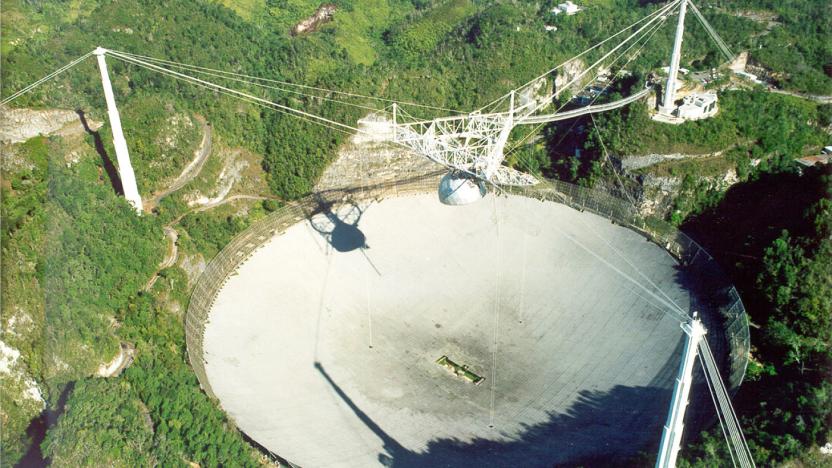USRA
Latest

Arecibo is monitoring potentially hazardous near-earth asteroid
The iconic Arecibo radio telescope has faced quite a few challenges over the last ten years, including budget cuts, a funding crisis and damage from Hurricane Maria. While it may not be the largest radio telescope in the world anymore (that honor belongs to Russia's RATAN-600), Puerto Rico's device is still an important asset for detecting dangers to our planet. It's good news, then, that the telescope is up and running again to be able to check out near-Earth asteroid 3200 Phaethon.

Google and NASA extend their D-Wave quantum computing contracts
D-Wave, a Canadian quantum computing firm, announced on Monday that a consortium between Google, NASA and the USRA (Universities Space Research Association) has agreed to extend its existing contract with the company for another seven years. This new agreement will see the existing 500-qubit D-Wave Two hardware remain at NASA Ames research center as well as install new quantum computers as they are invented. The Google-led consortium employs these computing platforms to study how the emerging technology could help develop AI and machine learning systems. NASA specifically uses the computer to generate better mission-control supports. [Image Credit: NASA]

Google and NASA team up for D-Wave-powered Quantum Artificial Intelligence Lab
Google. NASA. Quantum computers. Seriously, everything about the new Quantum Artificial Intelligence Lab at the Ames Research Center is exciting. The joint effort between Mountain View and America's space agency will put a 512 qubit machine from D-Wave at the disposal of researchers from around the globe, with the USRA (Universities Space Research Association) inviting teams of scientists and engineers to share time on the unique super computer. The goal is to study how quantum computing might be leveraged to advance machine learning, a branch of AI that has proven crucial to Google's success. The internet giant has already done some work with quantum computing before, now the goal is to see if its experimentation can translate into real world results. The idea, for Google at least, is to combine the extreme (but highly-specialized) power of the quantum bit with its oceans of traditional data centers to build more accurate models for everything from speech recognition to web search. And maybe, just maybe, with the help of quantum computers your phone will finally realize you didn't mean to say "duck."


